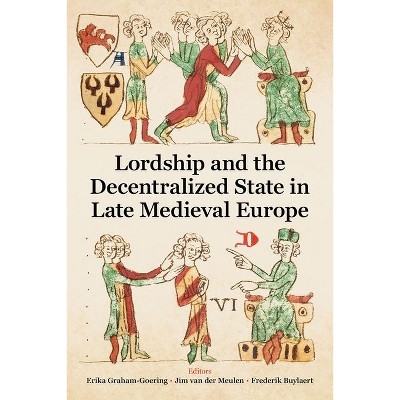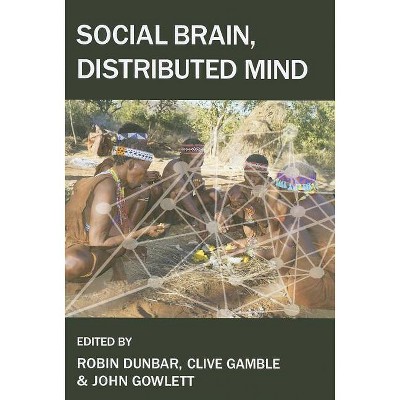Sponsored

Literature, Learning, and Social Hierarchy in Early Modern Europe - (Proceedings of the British Academy) by Neil Kenny (Hardcover)
In Stock
Sponsored
About this item
Highlights
- The literature and literate knowledge that were produced in Europe from the fifteenth to the seventeenth centuries emanated from societies that were rigidly hierarchical.
- About the Author: Neil Kenny is Senior Research Fellow at All Souls College, Professor of French at the University of Oxford, and a Fellow of the British Academy, where he is involved in language policy work as Lead Fellow for Languages.
- 312 Pages
- History, Civilization
- Series Name: Proceedings of the British Academy
Description
About the Book
In early modern Europe, literature and literate knowledge were produced within societies organised along hierarchical lines. What difference did that make to literature and literate knowledge? How were they inflected by social hierarchy? This volume asks these questions of genres, disciplines, practices, and writers ranging across Western Europe.Book Synopsis
The literature and literate knowledge that were produced in Europe from the fifteenth to the seventeenth centuries emanated from societies that were rigidly hierarchical. What difference did that fact make to the literature and literate knowledge? How did social hierarchy shape the production of literature and literate knowledge (by writers, patrons, printers) and their reception (by readers and audiences)? Literature, Learning, and Social Hierarchy in Early Modern Europe is the first book to ask these question of Western Europe, in relation to a wide range of genres, disciplines, practices, and writers. The picture that emerges is of literature and literate knowledge largely bolstering social hierarchies while also questioning at times the very basis on which societies measured the status and worth of their members.
Review Quotes
The volume places the subject of learning firmly at the heart of the history of European societies and their evolution.-- "Elisabeth C. Macknight, Historical Reflections"
There is much to learn and consider in this erudite and engaging volume. Besides its novel insights, it offers a robust and salutary reminder of the extent to which social hierarchies preoccupied early moderns throughout Europe, and how central the production and distribution of status was to the meaning-making of early modern texts. While laying down a map for the broad dimensions of the relationship, Kenny and his contributors have opened a door that will no doubt inspire exploration for years to come.-- "Adam Bridgen, The Seventeenth Century"
About the Author
Neil Kenny is Senior Research Fellow at All Souls College, Professor of French at the University of Oxford, and a Fellow of the British Academy, where he is involved in language policy work as Lead Fellow for Languages. His publications include The Uses of Curiosity in Early Modern France and Germany (2004), Death and Tenses: Posthumous Presence in Early Modern France (2015), and Born to Write: Literary Families and Social Hierarchy in Early Modern France (2021), all with Oxford University Press.
Shipping details
Return details
Trending Non-Fiction

















